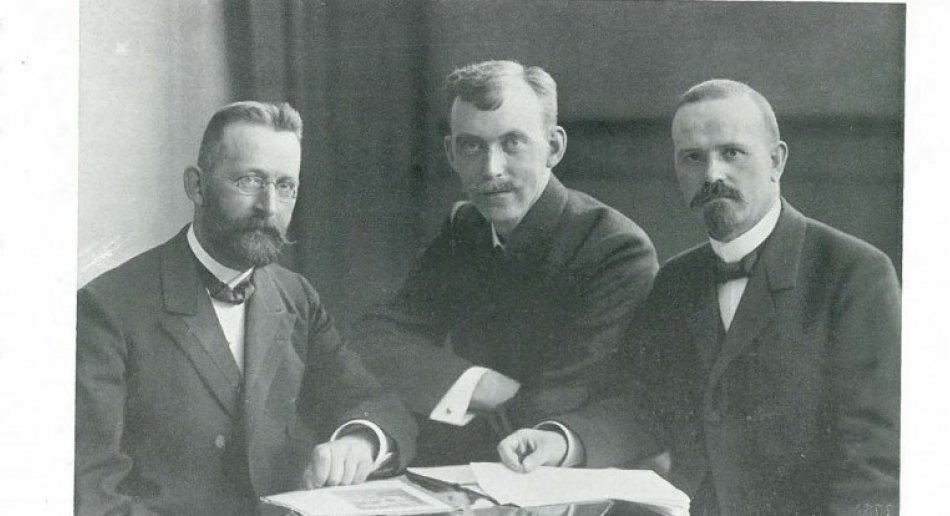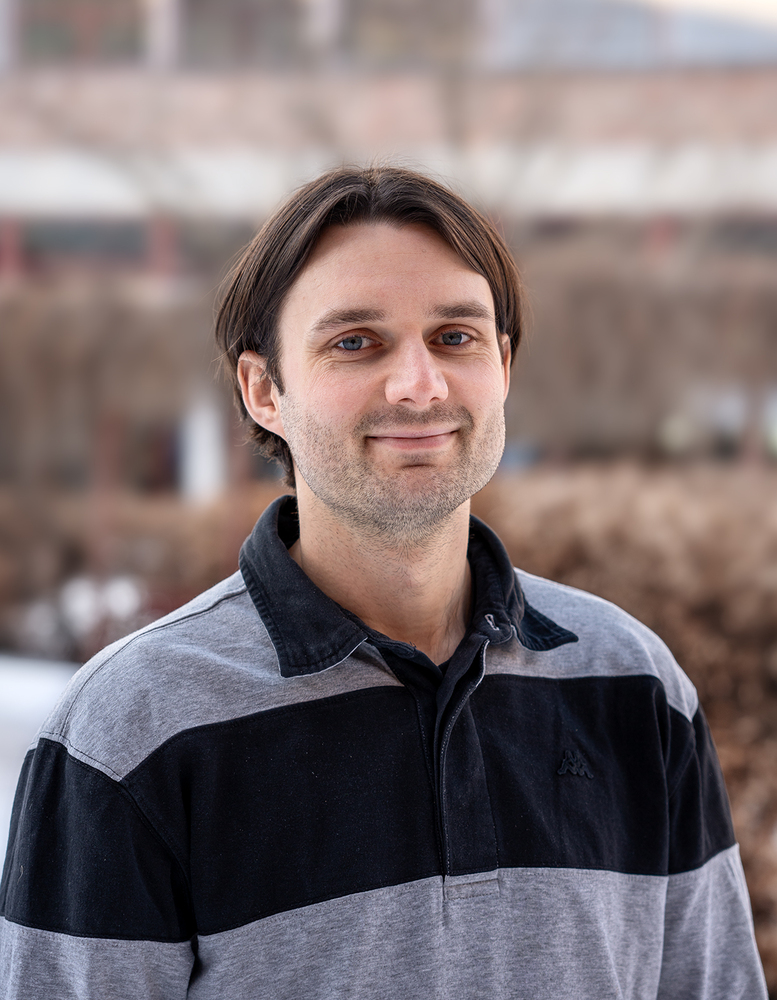
MF's Historical Archive Collections
MF's historical archive is a private archive that aims to facilitate research.
Contact person

Henrik Holtvedt Andersen
The historical archive collections consist of MF's extensive institutional archive from the foundation in 1907 to recent times, and several personal archives, in addition to some private collections. The archive also contains pictorial material and a number of artefacts and books, as well as bound lecture notes from the 1830s until 1920.
The MF archive contains valuable material that can be used for research, not only about MF as an institution, but also research on Norwegian church history and cultural history in general, especially in the 20th century. MF was and is a significant institution that has had a wide-ranging impact through the education of priests, Christianity teachers, deacons and catechists. Here you will find material that can be used for PhD theses, master's theses and various other historical presentations.
As from 2019, several of the archive's catalogues are available on Arkivportalen.no. Arkivportalen is a national search service across the catalogues of both public and private archive institutions.
What will you find in the archives?
The institutional archive contains documents from the board of trustees, board of directors, teachers' council, faculty council, etc.
H.G Heggtveit's collection contains unique documents from the period 1850-1920. Parish clerk Heggtveit held a central position in Norwegian Christian life. He was secretary of the petition "Til christendommens Venner i vort Land" (1883), co-editor of "For fattig og riig" and helped to found MF in 1907. The Heggtveit collection is primarily suitable for research on the Norwegian lay movement, especially Haugeanism. The collection contains authentic letters from Hans Nielsen Hauge and other Haugeans.
The personal archives are mostly private archives of former teachers at MF, but there are also a few archives of people with loose ties to MF. A selection of the personal archives:
- Professor Andreas Seierstad's archive contains important material focused on Christian organisational life outside the Church of Norway from 1920 to 1965. It also contains archival material from "The temporary church leadership" ("Den midlertidige kirkeledelse") and the history of MF.
- Other private archives:
- professor Leiv Aalen,
- professor Sverre Aalen,
- professor Olaf E. Moe,
- professor John Nome,
- professor Magne Sæbø,
- professor Torleiv Austad,
- professor Brynjar Haraldsø,
- professor Hans Kvalbein,
- head of practical theological training and former bishop of Stavanger Gabriel Skagestad,
- Rector (catechist seminar) Aasmund Dale,
- professor Åge Holter,
among others. - Collection of sermons after NS bishop Andreas Marius Olay.
- Collection of sermons after Johan Willoch Erichsen, former bishop of Bjørgvin diocese (1899-1916).
- The archive material of Professor Ole Hallesby can be found in the National Library's Collection of Private Archives as well as the MF archive.
We also have material from various MF organisations, student associations, the MF choir, the Student Council, etc. that sheds on MF's history.
Practical information for visitors
Visiting address
The Library, MF Norwegian School of Theology, Religion and Society, Gydas vei 4, Majorstuen, Oslo.
Opening hours
Archives can be consulted Monday to Friday 09-19:30.
Contact MF's historical archive
Contact information historical archivist: Henrik Holtvedt Andersen, University Librarian
Requesting archive items for the reading room
Archive items are to be used in the reading room and can be requested by e-mail bibliotek@mf.no.
You can find an overview of our archives on the Archive Portal. Please give as correct a source reference as possible.
There is a limit of 5 archive items (protocols or boxes) per request.
When using archive material, you must sign a self declaration form.
Order deadlines
We will make archive material avaiable by appointment, as a rule the day after the request has been accepted.
Confidential material
Please note that some archive material may contain confidential information. You must apply specifically for access to this material.
Reservation of archive material
If you do not finish working with the archive material that has been picked up for you before you leave for the day, notify the library desk and it will be reserved for the next day. You can reserve material you have requested for up to one week.
Regulations for the use of archives in the reading room
- The reading room is a workplace for our visitors, and we ask you to take this into account.
- Telephones and computer equipment must be left on silent.
- When using archive material: Food and drink can only be consumed outside the library.
- Archive items can be ordered by e-mail: bibliotek@mf.no.
When you leave the reading room
- Archive items are returned to the library desk after use. The material can be reserved for up to one week on request.
Archive material is irreplaceable and must be treated with care.
- Wash your hands after meal breaks.
- The archive material must not be used as a writing surface, and you must not make marks on it.
- It is not permitted to remove anything from the archive files, and the order of the contents must not be changed.
- The archive material must be returned as you received it.
Order transcripts of grades or copies of theses
- Former students who need transcripts of grades may order them here: eksamen@mf.no.
- For copies of completed PhD, master's or speciality theses, contact bibliotek@mf.no. If the theses need to be scanned, you will have to pay for the job. Cost of services.
Delivery of records
We regularly receive enquiries about taking over sermon collections etc. from former priests in the Church of Norway. Unfortunately, the archive does not have the capacity to accept such material. However, if there is material from people with close ties to MF and who have also had an impact at a national level, it may be relevant to consider the material.
Other
- MF's historical archive is a member of Arkivforbundet (The Norwegian Association of Archives) and Nettverk for privatarkiv in Oslo.
- The archive uses the digital cataloguing tool ASTA.
